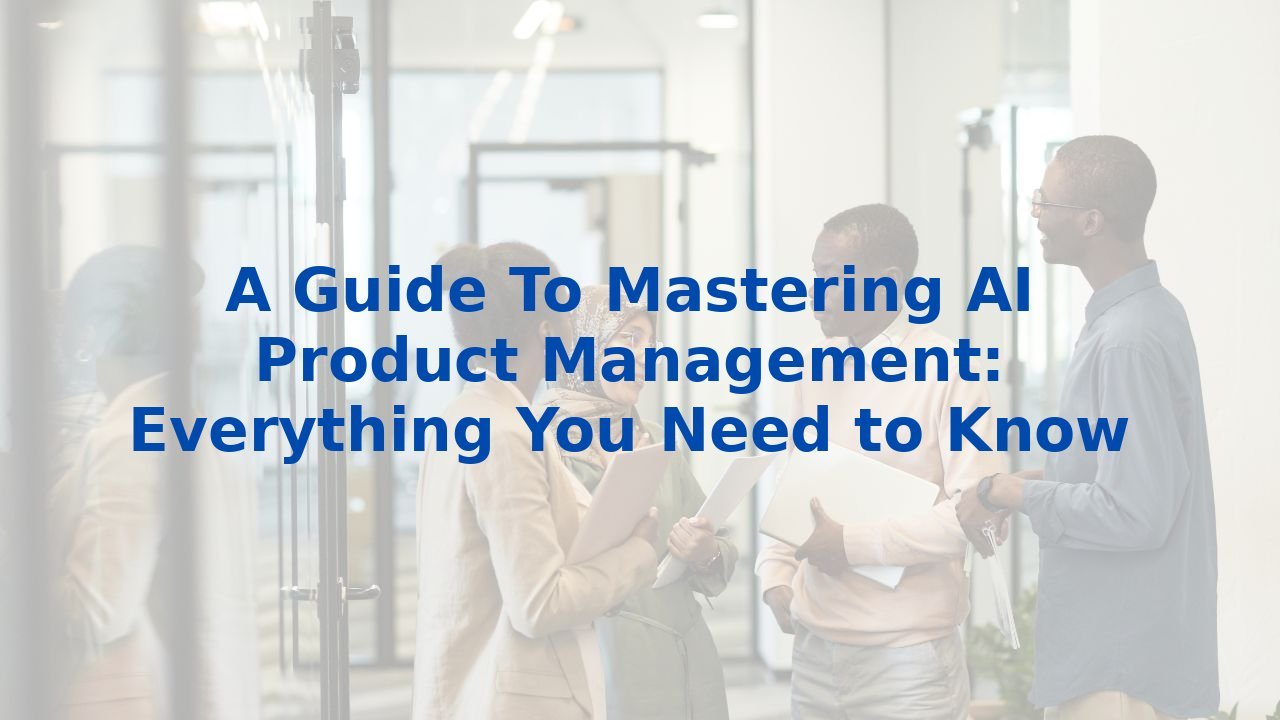A Guide To Mastering AI Product Management: Everything You Need to Know
A Guide To Mastering AI Product Management: Everything You Need to Know
The future of business lies in the strategic integration of artificial intelligence (AI). As we navigate this evolving landscape, the role of product management remains pivotal. Let's explore how AI enhances traditional business processes and unlocks unprecedented levels of efficiency.
Understanding Product Management in an AI Context
At its core, product management revolves around guiding a product from conception to launch and beyond. It requires a deep understanding of both market needs and the technical aspects of product development. With the advent of AI, product management is evolving into a more dynamic function, where data-driven insights dictate strategies and execution.
Streamlining Decision-Making Processes
One of the primary advantages of AI in product management is its ability to rapidly process vast amounts of data. It eliminates the guesswork associated with decision-making. Predictive analytics and machine learning algorithms can analyze market trends, consumer behavior, and competitive landscapes, offering actionable insights that empower managers to make informed choices.
Imagine: Rather than relying solely on intuition, a product manager can access real-time analytics that highlight potential market shifts. This leads to faster pivoting when necessary, ensuring that a product aligns with current consumer demands.
Enhancing Collaboration Across Teams
In the fluid environment of product management, collaboration is key. AI facilitates better communication and project management among diverse teams. For example, AI tools can track progress and predict project timelines, allowing teams to work in sync, improving accountability, and resource allocation.
“When teams leverage AI for collaboration, they transform isolation into innovation.”
This not only optimizes workflow but also harnesses the unique strengths of each team member, fostering a culture of teamwork that drives creative solutions.
Improving Customer Experience and Feedback Loops
AI excels in analyzing customer feedback and interactions, providing insights that drive refinements in product features and functionalities. By utilizing sentiment analysis, businesses can gauge customer satisfaction levels and identify pain points that need addressing. This iterative feedback loop creates a more responsive product that constantly evolves with its user base.
Furthermore, AI can automate customer interactions through chatbots and personalized recommendation systems, enhancing the customer experience while reducing the workload on human teams. This symbiotic relationship between AI and human effort creates a more holistic service experience.
Training Your Workforce for AI Readiness
Adopting AI within an organization is not solely about technology; it’s about people. Training your employees for AI readiness is paramount. When teams are equipped with AI skills, they can more effectively leverage these powerful tools in their workflows.
Investing in training programs: Developing tailored AI training solutions ensures that your workforce remains agile and prepared. This leads to enhanced innovation and responsiveness within teams. Consider offering comprehensive training for your entire workforce to ensure they can adapt to new technologies and methods seamlessly. Explore more about such programs through platforms dedicated to equipping organizations with necessary AI skills.
Driving Efficiency and Cost-Effectiveness
Incorporating AI into product management processes leads to substantial efficiency gains. By automating repetitive tasks, teams can focus their efforts on higher-value activities that require creativity and strategic thinking.
Moreover, AI aids in resource optimization. Enhanced forecasting capabilities allow businesses to align production with true market demand, reducing waste and lowering costs. This leads to overall cost-effectiveness, allowing organizations to reinvest savings into innovation and growth.
The Path Forward in AI Product Management
The journey to mastering AI product management is accessible to every organization. It begins with an open mindset toward embracing change and innovation. By integrating AI into core processes, organizations can unlock new potential, streamline operations, and create products that resonate deeply with their users.
As we move forward, remember that AI is a partner in your product management strategy, one that requires nurturing, understanding, and thoughtful engagement. The intersection of AI and product management is not just about technology—it's about transformation. Are you ready to embark on this journey?
For those looking to dive deeper into understanding how to equip your organization with AI skills, consider exploring dedicated training programs that can guide your team through this transformative process.



